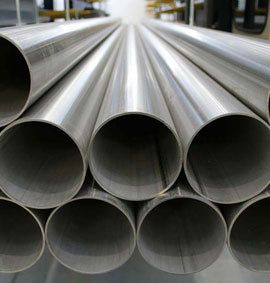1.Manufacturing Process: The primary difference between seamless stainless steel pipe and welded stainless steel pipe lies in their manufacturing process. Seamless pipes are made from a solid cylindrical billet, which is heated and then pierced to form a hollow tube. On the other hand, welded pipes are created by rolling a flat plate or coil into a cylindrical shape and welding the edges together.
2.Appearance: Seamless stainless steel pipes have a smooth and consistent surface finish, while
welded stainless steel pipes may have visible weld seams along their length.
3.Strength and Integrity: Seamless pipes are generally considered to have higher strength and structural integrity compared to welded pipes. This is because the absence of weld seams in seamless pipes eliminates the potential weak points that can arise from welding.
4.Size Range:
Seamless stainless steel pipes are available in a wider range of sizes and dimensions than welded pipes. Seamless pipes can be produced in larger diameters and longer lengths, making them suitable for applications that require larger pipe sizes.
5.Production Efficiency: Welded stainless steel pipes can be manufactured more efficiently and cost-effectively compared to seamless pipes. The welding process allows for continuous production and shorter lead times, making welded pipes more economical for certain applications.
6.Price: In general, welded stainless steel pipes are more affordable than seamless pipes. The manufacturing process and material cost associated with seamless pipes make them relatively more expensive.
7.Applications: Both seamless and welded stainless steel pipes have their specific applications. Seamless pipes are commonly used in high-pressure and critical applications where strength, reliability, and corrosion resistance are crucial, such as oil and gas exploration, chemical processing, and power generation. Welded pipes, due to their lower cost and availability in various sizes, are often used in less demanding applications like plumbing, construction, and general manufacturing.


